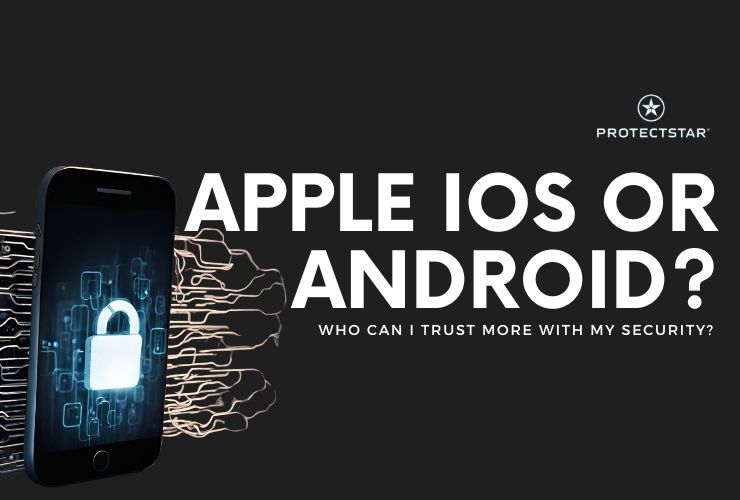Apple iOS vs. Android - Who Can You Trust More With Your Data?

Our phones hold a treasure trove of personal information - from biomarkers to credit card numbers and IDs, choosing a phone brand that prioritizes privacy is paramount. This gets tricky when giants like Apple iOS and Android dominate the market. Both offer robust features, but how do they fare on the privacy battlefield? Let's delve into their history, vulnerabilities, and approach to data security.
Apple: Fort Knox or Walled Garden?
Apple prides itself on a closed ecosystem, giving them more control over hardware and software. This translates to stricter App Store guidelines which are notoriously rigorous, minimizing the risk of malicious apps sneaking in.
Apple also prioritizes pre-installed, secure apps, limiting user control and potential vulnerabilities from third-party sources.
However, Apple's approach isn't flawless, as while aiming for complete security, some argue Apple's control can be overbearing, limiting user freedom.
Also, iOS hasn't been immune to exploits. The Pegasus spyware scandal exposed vulnerabilities that allowed attackers to infiltrate iPhones. These vulnerabilities often resided in complex software components, not user-downloaded apps.
Android: Openness with a Focus on Security
The Android platform offers more flexibility, as users have a wider app selection, but this also increases the risk of encountering malicious ones. We have more control over our devices, but this can introduce security risks if we aren't cautious.
Samsung has taken significant strides in security:
- Knox Security Platform: This built-in system offers hardware-backed encryption and secure folders for sensitive data.
- Security Updates: Samsung is committed to regular security patches, addressing vulnerabilities proactively.
However, there are challenges such as the open nature of Android. Because of it, different devices receive updates at varying speeds, leaving some users vulnerable. Pre-installed apps from carriers or manufacturers can pose security risks if not updated properly.
Recent Hacks: A Look at the Landscape
Both iOS and Android have faced recent attacks:
- iOS: Zero-click vulnerabilities in iMessage allowed attackers to potentially infiltrate devices without user interaction. However, these were complex attacks targeting specific individuals, not widespread breaches.
- Android: Fake banking apps have been a recurring threat on the platform, highlighting the importance of downloading apps only from trusted sources like the Google Play Store.
The Final Verdict: It Depends
There's no clear-cut winner. Here's a breakdown for easier decision-making:
- Choose Apple if: You prioritize a closed, secure ecosystem and are comfortable with less customization.
- Choose Android if: You value flexibility, customization, and a wider range of apps, but are comfortable being more vigilant about app permissions and updates.
General Recommendations for Enhanced Privacy:
- Regardless of brand:
- Download apps only from trusted sources (App Store/Google Play Store).
- Keep your phone's software updated.
- Be cautious of granting excessive app permissions.
- Use strong, unique passwords and consider two-factor authentication.
- For Android users: Be mindful of bloatware and consider disabling unnecessary apps.
What kind of phone do you have? Comment below!